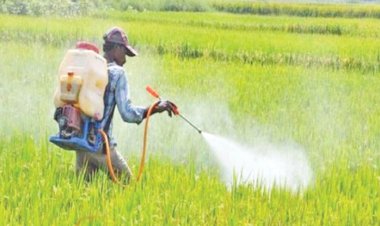Burkina Faso is considering endogenous solutions at a time when Covid 19 is rampant in the country with 152 cases

Burkina Faso is considering endogenous solutions at a time when Covid 19 is rampant in the country with 152 cases, 10 cures and 7 deaths on March 25, 2020. During the daily press conference of the response cell of the disease on March 26, the Minister of Higher Education, Scientific Research and Innovation announced two clinical trials. One with Chloroquine, the other with herbal medicines.
She was eagerly awaited. National research did not want to be told the challenge of the hour. She therefore responds present and puts two solutions on the table of proposals. Very soon, a team of researchers from the Institute for Research in Health Sciences (IRSS) will launch two clinical trials to evaluate the efficacy and safety of three products in the treatment of Coronavirus disease in Burkina Faso.
According to Minister of Higher Education, Scientific Research and Innovation Pr Alkassoum Maïga, it will involve administering products to patients and following up to see the evolution of their state of health. A check will be carried out to check whether this allows Covid 19 subjects to recover their health quickly and to check the effects and consequences of these products.
The first trial is a combination of Chloroquine and Azithromycin. It is called CHLORAZ and will be directed by Dr Halidou Tinto, Research Director at the Clinical Research Unit of Nanoro, in collaboration with the Muraz Center in Bobo Dioulasso, the Tingandogo University Hospital Center in Ouagadougou and Sourou SANON in Bobo- Dioulasso.
As for the second study, it is a clinical trial called API-COVID-19. It will be led by Burkina and Benin. It aims to assess the clinical and virological efficacy of a herbal medicine (phytomedicine) called APIVIRINE in patients with COVID-19. Coordination will be provided by a team of researchers from the Institute for Research in Health Sciences (IRSS) led by Dr Sylvin OUEDRAOGO, Director of Research in Pharmacology and Director of the IRSS.
APIVIRINE is an antiretroviral, antiviral which is effective on several viruses including that of HIV / AIDS and used for almost 20 years and presenting to date a good safety profile.
“The product comes from Benin and our researchers have set up the protocol for the test. We exchanged with Benin who decided to take the protocol of our researchers to do the test in Benin. So it will be done in two countries, “said Professor Alkassoum Maïga.
It appears that some confirmed COVID-19 patients have already successfully used APIVIRINE during their illness. They immediately improved their health, from the rapid improvement of symptoms to the negation of the coronavirus screening test after treatment.
” Better late than never ”
Why only now, when the virus is gradually spreading and already taking its toll. The response of the Minister of Higher Education, Scientific Research and Innovation: “Precautions are needed. If today we put APIVIRINE, or chloroquine, all the patients and the deaths follow one another, we are going to hit the ministry and the researchers. This is why these trials must pass before scientific committees to be validated.
Then we pass before the high council of scientific research so that it is still validated. After that, you have to take the opinion of the ethics committee and all the authorities, “he explains, while specifying that it is tomorrow, March 27, that the ethics committee will meet. “Better late than never,” added the minister.
And Dr. Tarnagda alongside the research teams to clarify that the situation is certainly critical, but we must not lose sight of the methodological approach that exists in the field of clinical trials. “We hope that the protocols will be validated next week and at the end, we will recruit the first patients (…) As the situation is urgent and serious, we have implemented a methodology, dynamic and evolving approach. This means that we are not going to wait for the end of the clinical trial before evaluating the mid-term data in favor of the use of these drugs, “he explains.
Alkassoum Maïga also reassured that Burkina is able to produce sufficient quantities of chloroquine and paracetamol up to 200,000 tablets / day of each type. It will just be enough to rehabilitate the U-Pharma unit of the IRSS / CNRST which no longer produced Chloroquine because of the discontinuation of this molecule.
Tiga Cheick Sawadogo
Lefaso.net

















